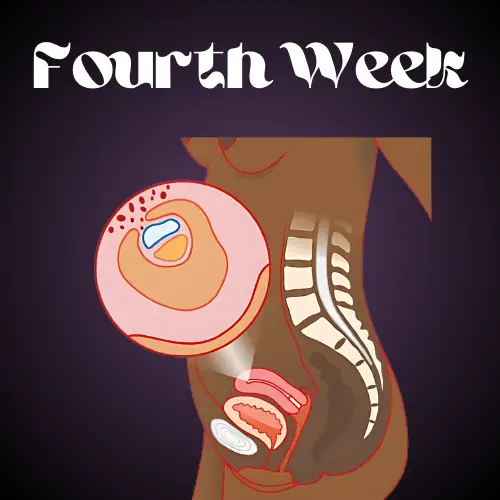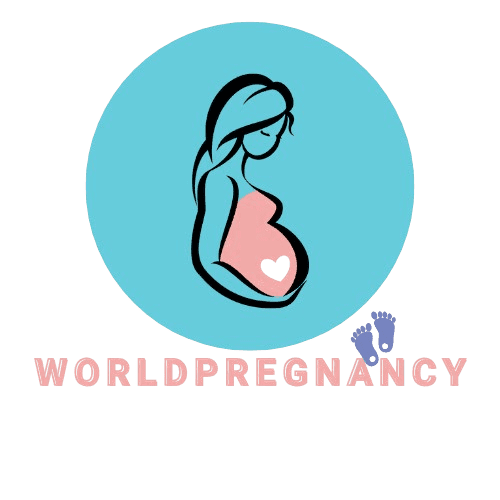Fourth Week of Pregnancy: Symptoms, Development & Care Tips
Discover what happens in the fourth week of pregnancy, including early symptoms, baby development, body changes, and essential health tips for a healthy start.

The fourth week of pregnancy marks a significant milestone in fetal development. At this stage, your baby is rapidly growing, and you may begin to notice early pregnancy symptoms. This article will provide essential insights into the fourth week of pregnancy, including fetal development, body changes, symptoms, precautions, and frequently asked questions.
What Happens in the Fourth Week of Pregnancy?
At four weeks pregnant, the embryo implants into the uterine lining, forming the placenta. This phase is crucial as the baby’s organs and body structures begin to take shape.
Fetal Development at 4 Weeks
The embryo consists of two layers of cells—the epiblast and hypoblast—which will form the baby’s organs.
The amniotic sac and yolk sac start developing to support the baby.
The neural tube, which will later become the brain and spinal cord, begins to form.
The heart and primitive circulatory system start developing.
The baby is about the size of a poppy seed.
How Does the Body Change in Week 4 of Pregnancy?
Your body undergoes several hormonal and physical changes to support the pregnancy:
An increase in hCG levels confirms pregnancy.
Mild cramping and implantation bleeding may occur.
Breast tenderness and swelling due to rising estrogen and progesterone levels.
Fatigue as the body adjusts to new hormone levels.
Nausea and morning sickness may begin.
Increased urination due to hormonal changes affecting the kidneys.
Symptoms of Pregnancy at Week 4
Early pregnancy symptoms at 4 weeks include nausea, fatigue, bloating, and mood swings.
Spotting or light bleeding from implantation.
Heightened sense of smell and food aversions.
Mild pelvic discomfort as the uterus expands.
Metallic taste in the mouth is a common pregnancy symptom.
When to Seek Medical Advice
Heavy bleeding is similar to a period.
Severe cramping or sharp abdominal pain.
Persistent nausea and vomiting prevent you from eating or drinking.
High fever or chills.
Precautions & Care Tips for the Fourth Week of Pregnancy
What to Eat at 4 Weeks Pregnant
A healthy diet ensures proper fetal development:
Folic acid-rich foods: Leafy greens, citrus fruits, fortified cereals.
Protein sources: Lean meat, eggs, dairy, legumes.
Iron and calcium: Dairy products, nuts, and leafy vegetables.
Hydration: Drink plenty of water to prevent dehydration.
Exercise During the Fourth Week of Pregnancy
Light walking and prenatal yoga are safe.
Avoid high-impact workouts and heavy lifting.
Consult a doctor before starting a new exercise routine.
Safe Activities in Early Pregnancy
Meditation and deep breathing exercises.
Light stretching to improve flexibility.
Adequate sleep and rest to manage fatigue.
Dos and Don’ts in Early Pregnancy
✅ Take prenatal vitamins containing folic acid. ✅ Maintain a healthy diet and hydration. ✅ Get regular sleep and manage stress. ❌ Avoid alcohol, smoking, and caffeine. ❌ Steer clear of raw or undercooked meat and seafood. ❌ Refrain from strenuous physical activities.
Frequently Asked Questions (FAQ)
Can I take a pregnancy test at 4 weeks?
Yes, a home pregnancy test should detect hCG levels by this time.
Is cramping normal at 4 weeks pregnant?
Mild cramping is normal due to implantation, but severe pain requires medical attention.
What does a 4-week pregnant belly look like?
Your belly may not show yet, but bloating is common.
Can I have morning sickness at 4 weeks pregnant?
Yes, nausea and vomiting may begin, though it varies for each woman.
Should I see a doctor at 4 weeks pregnant?
Yes, schedule a prenatal appointment to confirm pregnancy and receive guidance.
Conclusion
The fourth week of pregnancy is a crucial time for early fetal development and body adjustments. Paying attention to symptoms, maintaining a healthy lifestyle, and following medical advice will ensure a smooth and healthy pregnancy journey.
